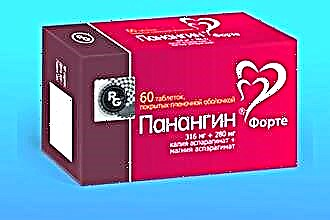Pregnancy is a very important period in the life of every woman, during which she should be especially attentive to her health. Indeed, the health of the developing baby directly depends on the well-being and condition of the expectant mother. Therefore, if a usually dry cough is often ignored, in the hope that it will go away on its own, then during pregnancy it is necessary to find out its causes as soon as possible.
Why is a cough dangerous for a pregnant woman?
There are at least two important reasons for which a dry cough in a pregnant woman must be treated. The first is to prevent complications. If it is the beginning of a respiratory or viral disease, timely treatment started will help prevent the deepening of the disease and the development of complications,  including the effects of viruses and infection on the fetus. If this is a symptom of a chronic disease, it is important to take preventive measures to prevent its exacerbation.
including the effects of viruses and infection on the fetus. If this is a symptom of a chronic disease, it is important to take preventive measures to prevent its exacerbation.
The second, perhaps even more important reason why treatment of dry cough during pregnancy is necessary is a threat to the normal development of the fetus. A mild non-infectious cough is not dangerous for an unborn child... But if a pregnant woman begins to suffer from coughing fits, strong tremors of the uterus occur, and they pose a real threat.
In the early stages of pregnancy, when the ovum is not yet securely fixed on the wall of the uterus, it may simply be pushed into the uterine cavity and then the body will bring it out. But even in the second trimester, a dry cough during pregnancy can cause partial placental abruption. In this case, the child will experience constant oxygen starvation, and this will have a bad effect on the development and nutrition of his internal organs, nervous system, and brain.
And even in the last weeks, when the formation of the child's organs and systems is almost completely completed, coughing fits are undesirable.
The greatly enlarged uterus constantly presses on the bladder, and when coughing, involuntary urination occurs. Its frequent contractions can be perceived by the body as the onset of labor and provoke early labor.
Cough remedies
It is better to treat a dry cough during pregnancy with folk remedies, especially in the first trimester, when the fetus is not yet protected by the placenta and everything that enters the mother's body directly affects it.
But even when choosing folk remedies, one must be very careful and attentive - some plants and essential oils are categorically contraindicated during pregnancy.
 Here are some sure and safe ways to treat dry coughs:
Here are some sure and safe ways to treat dry coughs:
- Pine buds. You can buy them at a pharmacy or collect them yourself in an ecologically clean area. Pour a tablespoon of kidneys with a glass of boiling water, boil for 5-10 minutes and pour into a thermos. Insist 1-1.5 hours, strain, take a teaspoon, when severe sore throat begins.
- Expectorant collection. Such fees are sold in pharmacies, but when buying them, it is very important to pay attention to the composition - there may be herbs that do not suit you. It is better to prepare the collection yourself. Needed equal parts of chamomile, primrose, rose hips, crushed plantain leaves. A tablespoon of the mixture is steamed in a teapot with a glass of boiling water and insisted for at least half an hour. Add a teaspoon of honey and drink 1-2 tablespoons several times a day.
- Onion milk. Boil two chopped large white onions in two glasses of milk over low heat. Strain the milk, add a teaspoon of honey (if you are not allergic to it) and drink in small sips. Such milk in the evening soothes well and serves as an excellent prevention of nocturnal attacks of dry cough.
- Anise water. Anise seeds are an excellent antitussive agent that is completely safe for pregnant women and babies. Mix equal parts anise, fennel, thyme and flaxseeds. Pour a tablespoon with a glass of cold water, leave for 2 hours, then bring to a boil over low heat and strain immediately. Take 1-2 tbsp. l. several times a day.
Some very popular today plants are categorically contraindicated for pregnancy, as they can cause a complication of its course or fetal malformations.
St. John's wort in large quantities is toxic, and taken before the operation relieves anesthesia. Mother and stepmother provokes the development of oncology in the fetus,  sometimes causes mutations. Ginseng and Echinacea increase blood pressure. Gingko biloba and aloe thin the blood and can cause uterine bleeding.
sometimes causes mutations. Ginseng and Echinacea increase blood pressure. Gingko biloba and aloe thin the blood and can cause uterine bleeding.
Natural pharmacy expectorants also help with coughs. It is better to buy them after consulting a doctor and apply them strictly in accordance with the instructions.
In the first trimester, "Bronchicum", "Stodal", "Plantain syrup" are allowed. At a later date - "Stopussin", "Libeksin", "Falimint". If the coughing attacks are very strong, antitussive drugs are prescribed: "Padeviks", "Ferveks", "Tussin".
Inhalation and warming up
Inhalation during pregnancy is not contraindicated. You can simply breathe over the steam or use inhalers. Mineral water "Borjomi" or soda solution well soften the cough. Decoctions of medicinal herbs are also suitable: thyme, eucalyptus, St. John's wort, pine needles, sage, marshmallow, etc. Too often do not need inhalations - just breathe over the steam for 7-10 minutes 1-2 times a day.
The best time to inhale is 1-2 hours before or after meals. It is advisable to rinse your mouth with clean water so that when you take a deep breath, food debris does not get into your throat. After inhalation, you need to give your throat complete rest for at least half an hour: do not drink, do not eat, do not talk, do not go outside. When using portable inhalers with essential oils, make sure that their concentration is not too high and do not use them more often 1-2 times a day.
 Treatment of dry cough with warming up in pregnant women should be correct. All procedures that activate blood circulation in the lower body and increase blood pressure are strictly prohibited:
Treatment of dry cough with warming up in pregnant women should be correct. All procedures that activate blood circulation in the lower body and increase blood pressure are strictly prohibited:
- mustard plasters on feet and calves;
- any baths: steam room, sauna, etc .;
- hot baths;
- full mud wraps.
All electrical procedures are also prohibited, since even a weak effect of an electric current can have an unpredictable effect on the fetus. Paraffin therapy can only be used under the supervision of a specialist.
The white list includes vodka compresses on the neck and bronchi, rubbing the chest with turpentine and camphor oil, mustard plasters on the bronchi and back (avoiding the heart area). The procedures should be performed every other day. Make sure to prevent overheating and severe pain (with mustard plasters - chemical burns). If the uterus is in good shape, immediately cancel warming up.
For sensitive skin or allergies to turpentine and essential oils for the compress, you can use cabbage with honey, mashed potatoes, grated onions with honey and butter.
Keep the onion compress for no longer than 20 minutes. Mashed potatoes - up to 1 hour, and cabbage with honey can be left overnight. It is imperative to insulate the compress with cotton wool or a terry towel folded in several layers. After the procedure, stay in bed for at least an hour.
Prevention measures
In order not to need to treat a cough during pregnancy, it is better to take all measures that will help prevent its occurrence:
- avoid drafts, sudden temperature changes, walking in bad weather;
- give up long trips, a sharp change in climatic conditions;
- monitor the cleanliness, temperature and humidity of the air in the house;
- if there is an air conditioner, it is imperative to perform preventive cleaning and change filters;
- check the apartment for mold and if it is found it must be eliminated with the help of special preparations (not on your own!);
 examine the living and working premises for irritants and allergens, if possible, eliminate their influence;
examine the living and working premises for irritants and allergens, if possible, eliminate their influence;- dress for the weather, avoiding overheating or hypothermia;
- during the massive spread of ARVI, try to avoid crowded places;
- not to contact people infected with viruses or infections (even family members);
- try to walk every day in the fresh air in places far from gas-polluted streets (in a park, square, forest);
- after returning from a walk, be sure to wash your hands with running water and soap, you can rinse your throat and mouth;
- monitor your diet, enrich it with fresh fruits and vegetables, take vitamin supplements if necessary.
But it must be remembered that pregnancy is not a disease. With its normal course, you should try to lead a normal life: do what you love, communicate with friends, in the absence of contraindications, do gymnastics regularly. Positive emotions are no less important for the expectant mother than proper nutrition and regimen.
And the main thing to remember is that the entire period of pregnancy should proceed under medical supervision.
Self-medication is categorically contraindicated, even folk remedies are best used after consulting a specialist. Then the dry cough will quickly disappear, it will not turn into a chronic form and will not darken the entire period of bearing the child.

 examine the living and working premises for irritants and allergens, if possible, eliminate their influence;
examine the living and working premises for irritants and allergens, if possible, eliminate their influence;

